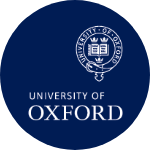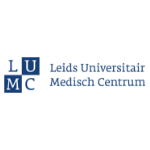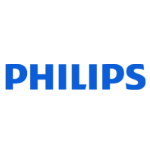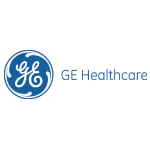Promote innovative system-based solutions to benefit rare cancer patients
The Rare Cancer project unites a community of innovators promoting opportunity, services and products that benefit rare cancer patients and healthcare providers with commercially sustainable solutions. The project is built on the understanding that rare cancers are a major social concern, and addressing them could expand the cancer market by 20% (€5 billion per year).
Origins
One in five of all cancer patients have a rare cancer. Despite major investment in cancer research, the five-year survival rate for rare cancer is 48%, compared to 68% for common cancers. This is a major inequality that has received surprisingly little attention. The Rare Cancer Knowledge Innovation Community (KIC) was launched with the ambition to provide solutions that address the unmet needs and challenges that rare cancer patients face in Europe.
Team
The Rare Cancer Knowledge Innovation Community (KIC) was launched in March 2016 by University of Oxford, GE Healthcare and the European Organisation for Research and Treatment of Cancer (EORTC). New project partners joined over the next two years, including global firms like Philips and Pfizer; small firms, like Oncompass, Healthcare at Home, Oxford Nanopore Technologies, MiiData and CancerAid; academic universities like Leiden Univesity Medical Centre, and the European Reference Network EURACAN.
The project
The innovation community involved in the Rare Cancer project is dedicated to innovation by design to improve the rare cancer healthcare system and to address rare cancers, which are defined as having an incidence of fewer than six new cases per 100 000 population per year. Our focus has been two-fold: 1) developing validated technologies for rare cancers, and 2) achieving connectivity between these technolgies to create solutions greater than the sum of their parts.
Building on strong partnerships, the project has advanced in its aim to deliver system-based solutions to address the four main challenges in rare cancer management: diagnostics, treatment, connectivity and education. Project results have included:
- Integrated Diagnostic Digital Pathology: Collaboration with Philips to develop a a rare cancer specific diagnostic tool that digitises the pathology workflow and allows case exchange between expert pathologists.
- Cloud-based MDT Case Exchange: Collaboration with GE Healthcare to design an MDT case exchange system to facilitate automating MDT data collection, support enrollment to clinical trials and ensure quality management.
- RareCan1 Basket Trial leading to Orphan Licensing: Co-design of an innovative trial based on drug resistance biomarkers, with the European Organization of Research and Treatment of Cancer (EORTC), with the aim of achieving orphan license for three agents selected by genomic biomarkers.
- Unique Educational Materials: Collaborating with Voices of Oxford to develop a mandatory online training package for professionals in EURACAN healthcare provider centers.
Impact
The main impact of our solution is improvement in the duration and quality of life for patients with rare cancers. For healthcare providers, optimum use of experts and remote collaboration tools for better output of diagnostic processes avoids duplication and leads to significant global healthcare standards for rare cancers. A unique infrastructure, providing support to innovations, connections with international networks and access to patients for trials, will provide enhanced opportunities for industry and develop valuable market propositions.
Why this is an EIT Health project
By encouraging networking for healthcare innovation, this project aligns with the basic goal of EIT Health. The project is also in keeping with the EIT Health Focus Area of “Health Care Pathways”, because it seeks to alter the course of rare cancers for the benefit of European patients.
Members

CLC/InnoStars: UK-Ireland
Partner classification: Education, Research
Partner type: Core partner
The University of Oxford is one of the leading research and teaching Universities in the United Kingdom and Europe. The Medical Sciences division has major global collaborations across the breadth of biomedical sciences.
University of Oxford
Key Activities in Corporate Innovation
Med Tech, ICT
Key Activities in Social Innovation
Healthcare provision
Key Activities in Business Creation
Incubation, Finance & Investment, Technology Transfer, Business coaching, Testing & Validation
Key Activities in Education
Business Schools, Entrepreneurship training, Technical faculties, Medical faculties


CLC/InnoStars: Belgium-Netherlands
Partner classification: Education, Research, Hospital / University Hospital
Partner type: Associate Partner
The mission of the LUMC is ‘to be an innovator improving both healthcare and population health’. LUMC is a university medical center for research, education and patient care with a high quality profile and a strong scientific orientation. It has a unique research practice, ranging from pure fundamental medical research to applied clinical research. LUMC wants to perform ground-breaking innovation. Researchers, educators and healthcare providers at LUMC work together around 3 societal outreach topics, Oncology, Regenerative Medicine and Population Health. Furthermore 10 themes for innovation are defined Academic Pharma, Neuro Science, Cancer, (auto)Immunity, Cell, Tissue & organ, Cardio-Vascular, Genetics, infection, Life course and prevention and Lifestyle. https://strategie.lumc.nl/en/
Leids Universitair Medisch Centrum
Leids Universitair Medisch Centrum, Albinusdreef 2, 2333 ZA Leiden, Netherlands
Key Activities in Research and Developement
Life Sciences, Clinical research
Key Activities in Social Innovation
Healthcare provision
Key Activities in Business Creation
Incubation, Technology Transfer


CLC/InnoStars: Belgium-Netherlands
Partner classification: Business
Partner type: Associate Partner
At Philips, our purpose is to improve people’s health and well-being through meaningful innovation. We aim to improve 2.5 billion lives per year by 2030, including 400 million in underserved communities.
We see healthcare as a connected whole. Helping people to live healthily and prevent disease. Giving clinicians the tools they need to make a precision diagnosis and deliver personalized treatment. Aiding the patient's recovery at home in the community. All supported by a seamless flow of data.
As a technology company, we – and our brand licensees – innovate for people with one consistent belief: there’s always a way to make life better.
Philips Electronics Nederland B.V.
Philips Electronics Nederland B.V., Boschdijk 525, 5622 Eindhoven, Netherlands
Key Activities in Corporate Innovation
Med Tech, ICT


CLC/InnoStars: InnoStars
Partner classification: Business, Education, Research
Partner type: Core Partner
GE Healthcare, as a leading provider of medical imaging, monitoring, biomanufacturing, and cell and gene therapy technologies, enables precision health in diagnostics, therapeutics and monitoring through intelligent devices, data analytics, applications and services. With over 100 years of experience in the healthcare industry and more than 50,000 employees globally, the company helps improve outcomes more efficiently for patients, healthcare providers, researchers and life sciences companies around the world.
GE Healthcare
Key Activities in Research and Developement
Other research, Biomedical engineering, Life Sciences, Clinical research
Key Activities in Corporate Innovation
Pharma, Med Tech, ICT, Diagnostics, Imaging
Key Activities in Business Creation
Incubation, Finance & Investment, Business coaching, Testing & Validation
Key Activities in Education
Business Schools, Entrepreneurship training, Healthcare professional education/training

| Professor of Medical Oncology | University of Oxford
Contact